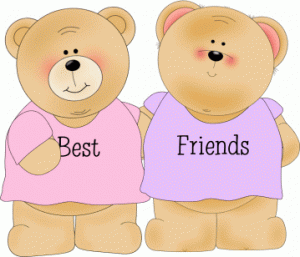I’ve recently been chatting to one of the all-time gurus of media strategy about the state of planning in the industry. He worries that good consumer insight is being overshadowed by big data, that the exciting developments in this field will lead to real deep human insight being of less value to marketers and overlooked. Judging by the debates I have listened to at conferences and seminars over the last couple of weeks, this is a question that is looming over our industry and worrying many. To polarise opinions there are the neophiles who want data to drive everything (David Rowan has suggested that you’ll be disadvantaged without it), and then there are the traditionalists who think big data is dirty data and don’t believe it can give any real insight at all (Dominic Mills says it is the prerogative of those who peddle snake oil).
Of course both camps are right and wrong. Let’s simplify the issue. Let’s say that there are just two kinds of good comms. One drives desire, the other harvests that desire. Clearly data will make the latter more efficient and more effective. Data also has a role to play in comms that build desire, but it is not only driver of those comms strategies. Good old fashioned human insight is essential to explain and interpret the information that data can provide. Consumer and market place understanding will continue to be sourced from all kinds of insight, some of which will be qualitative rather than quantitative, ethnographic rather than interactional, of course behavioural economics and even gut instinct. This is true whatever the medium.
Recently Carolyn Everson was interviewed by Ian Darby in Campaign. She said in closing :
“When Mark [Zuckerberg] first interviewed me, he said: ‘I want the content from marketers to be as good as that from your best friend.’ That was his vision – I don’t think we’re there yet; I think it’s a long-term vision that we have to get to – but the goal is to have marketing become as integrated an experience as any content you’d get from your friends.”
I agree with Carolyn here. We are nowhere near there yet. Facebook users are unused to being interrupted by advertising (I’m talking brand building and desire creating advertising here, not harvesting demand or DR). The real joy of FB is that you stay in touch with a wide circle of friends and family who constantly surprise and delight you with their updates. You’ll be the fan of various brands or organisations that you really warm to. But your expectation will be that the updates that they bring you will be as great as the updates from your actual friends. This requires much stronger, more insightful, and more in depth consumer insight than any other medium. To compete for positive attention in this environment any brand communicating on FB needs to understand you as intimately and as personally as your friends and family do. And your friends don’t track all your recent internet activity, e-commerce or supermarket receipts like big data can (or at least if they do you have the wrong kind of friends). That isn’t how they have insight into you.
Now, some of your FB friends have known you all your life, so this is quite a big ask. Not one that can be solely satisfied by algorithms. I don’t think therefore that the need for great consumer insight is being overshadowed at all. I think it’s about to have a new, invigorated, lease of life (or likes).
